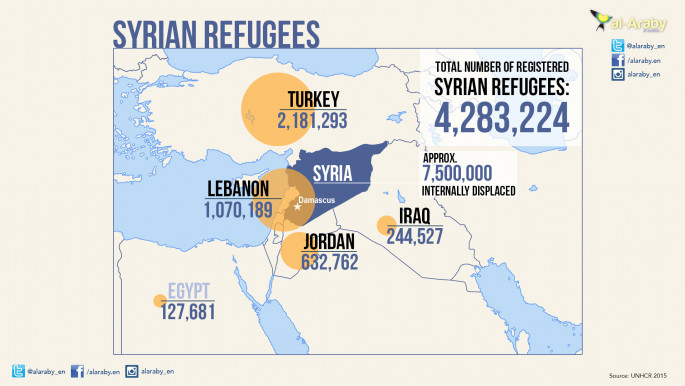Greece 'not ready' to implement EU-Turkey refugee deal yet
Greece has said it is not ready to send refugees back to Turkey, as Europe hoped to implement the first day of migrant deal between the EU and Ankara on Sunday.
Athens was due to deport refugees who reached Greek shores on Sunday, but Greek leader Alexis Tsipiras told ministers the country still needs more time to implement the deal.
Under the agreement for every refugee Greece deports to Turkey, the EU would resettle one Syrian from Turkey's
refugee camps.
"The agreement to send back new arrivals on the islands should, according to the text, enter into force on 20 March," the government coordinator for migration policy (migration coordination agency) spokesman Giorgos Kyritsis told AFP.
"But a plan like this cannot be put in place in only 24 hours."
The controversial deal was signed on Friday with the hope of implementing it on Sunday.
Hundreds of security and legal experts - 2,300 according to Tsipras - are set to arrive in Greece to help enforce the deal, described as "Herculean" by European Commission chief Jean-Claude Juncker.
France and Germany have also pledged to send 600 police and asylum experts to assist Greece who said they would be unable to honour the deal until the extra helpers arrived.
 |
| Syrians living abroad [click to enlarge] |
As the deal came into force, around 1,500 people rushed to cross the Aegean onto Greece's shores. Tragically, a four-month-old baby drowned when a boat sank off the Turkish coast.
Angela Merkel, a key backer of the scheme, said the deal will not realistically be implemented until the start of April.
There are around 47,500 refugees in Greece, including over 10,000 on the Macedonian border,
Around 4,000 people have lost their lives crossing the Aegean in flimsy death boats, including 500 this year.
The deal is meant to cope with the crisis, however, human rights groups have said the agreement will do more harm than good.
The United Nations has already warned that the deal could be illegal.
Amnesty International has called the deal a "historic blow to human rights" while thousands of people marched in London, Athens, Barcelona, Vienna, Amsterdam and several Swiss cities in opposition to the deal.
"We're calling on the Greek government to stop aligning itself with the EU's anti-refugee policies," said pro-refugee activist Thanassis Kourkoulas at a rally in the Greek capital.
Turkey has given around two million Syrians refuge during Syria's five-year war.
But Ankara has come under attack for benefiting from the agreement, which critics say puts money above lives.
It won an acceleration of its long-stalled bid for EU membership, a doubling of refugee aid to six billion euros ($6.8 billion) and visa-free travel in Europe's Schengen passport-free zone.





 Follow the Middle East's top stories in English at The New Arab on Google News
Follow the Middle East's top stories in English at The New Arab on Google News
![Israeli forces ordered bombed Gaza's Jabalia, ordering residents to leave [Getty]](/sites/default/files/styles/image_330x185/public/2176418030.jpeg?h=a5f2f23a&itok=_YGZaP1z)

